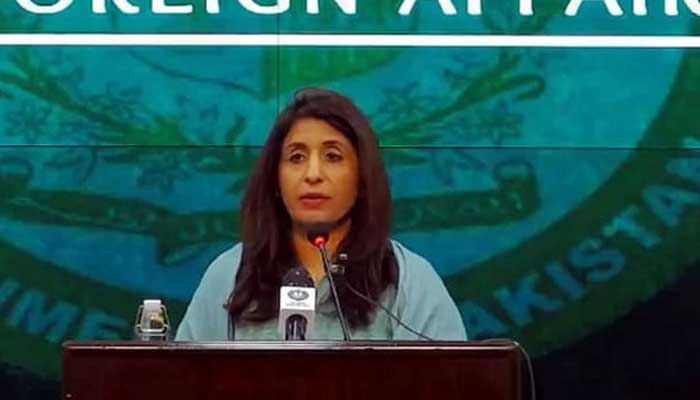

- FO stresses dispute must be resolved in line with UNSC resolution.
- Says claims not only misleading but “dangerously delusional”.
- Spox adds India’s unilateral actions in IIOJK can’t change reality
In response to Indian Minister for External Affairs Subrahmanyam Jaishankar’s remarks on the disputed region of Kashmir, the Foreign Office (FO) on Sunday unequivocally rejected "any narrative that suggests that the dispute has been or can be settled unilaterally".
“The Jammu and Kashmir dispute is internationally recognised and must be resolved in accordance with the United Nations Security Council (UNSC) resolutions and the wishes of the Kashmiri people. Resolution of this unresolved conflict is pivotal to peace and stability in South Asia,” FO Spokesperson Mumtaz Zahra Baloch said in a statement.
On Friday, Jaishankar said that the era of "uninterrupted dialogue" with Pakistan is over while saying that New Delhi will respond to developments "whether positive or negative".
"So far as Jammu and Kashmir is concerned, Article 370 is done. The issue [now] is what kind of relationship we can contemplate with Pakistan," the Indian media quoted him as saying at a private event.
Responding to the remarks, Baloch said that such claims were not only "misleading but dangerously delusional, as they blatantly disregard the on-ground realities".
"India’s unilateral actions in Indian Illegally Occupied Jammu and Kashmir (IIOJK) cannot and will not change this reality,” she added.
The spokesperson reiterated Pakistan’s commitment to diplomacy and dialogue but warned that any hostile actions would be met with "unyielding resolve".
She urged India to abandon its "provocative rhetoric" about the Indian occupied territory, and to instead engage in a meaningful dialogue for a just and lasting resolution to the dispute.
The statement stressed that true peace and stability in South Asia can only be achieved through a settlement in accordance with UNSC resolutions and the inalienable rights of the Kashmiri people.
Pakistan downgraded its ties with India after the Modi-led government unilaterally changed the special status of the IIOJK in August 2019 — the decision that Islamabad believed undermined the environment for holding talks between the neighbours.
Islamabad has linked its decision to normalising ties with New Delhi with the restoration of the special status of the IIOJK.
Despite the frosty ties, the two countries agreed to renew the 2003 ceasefire agreement along the Line of Control (LoC) in February 2021.












